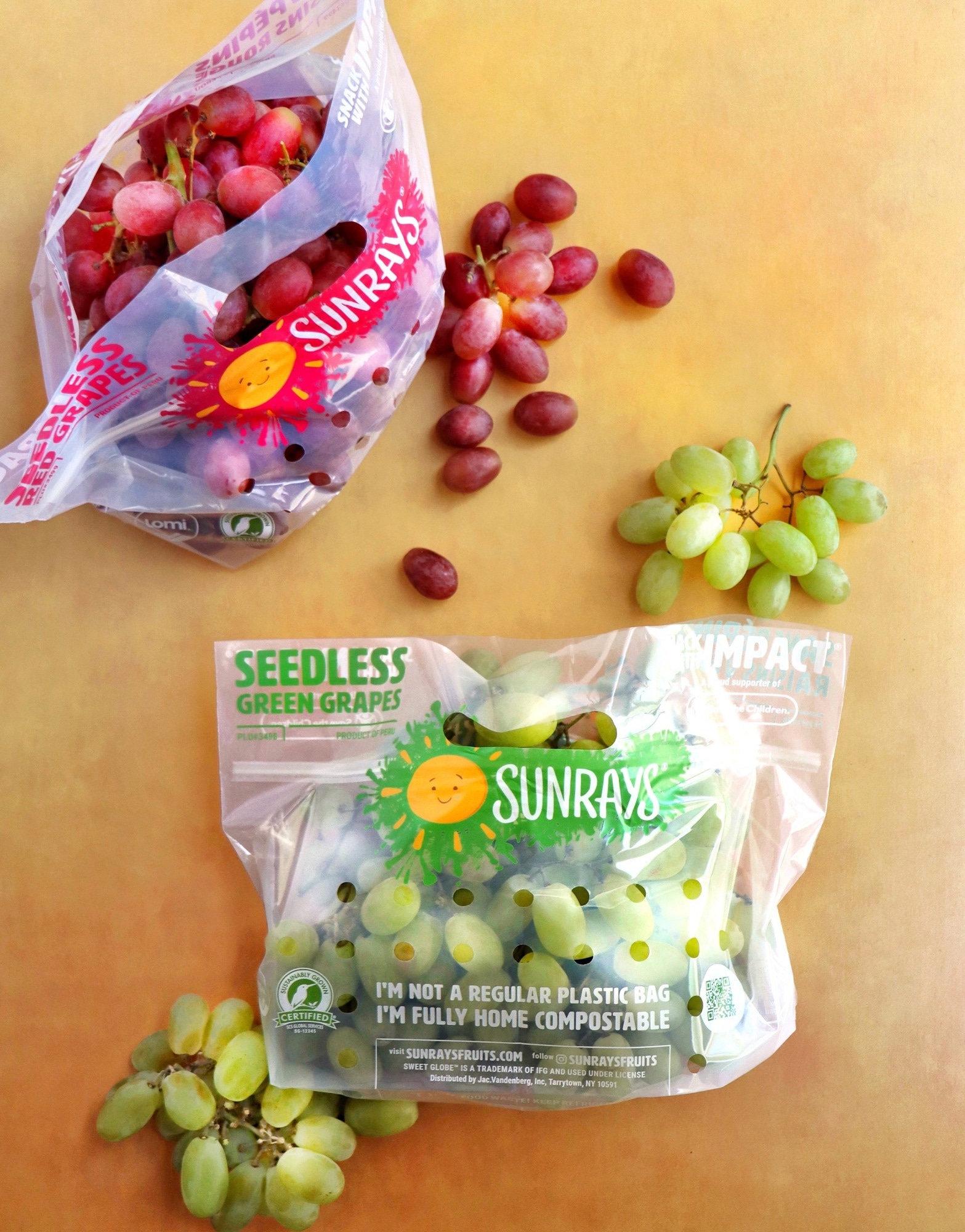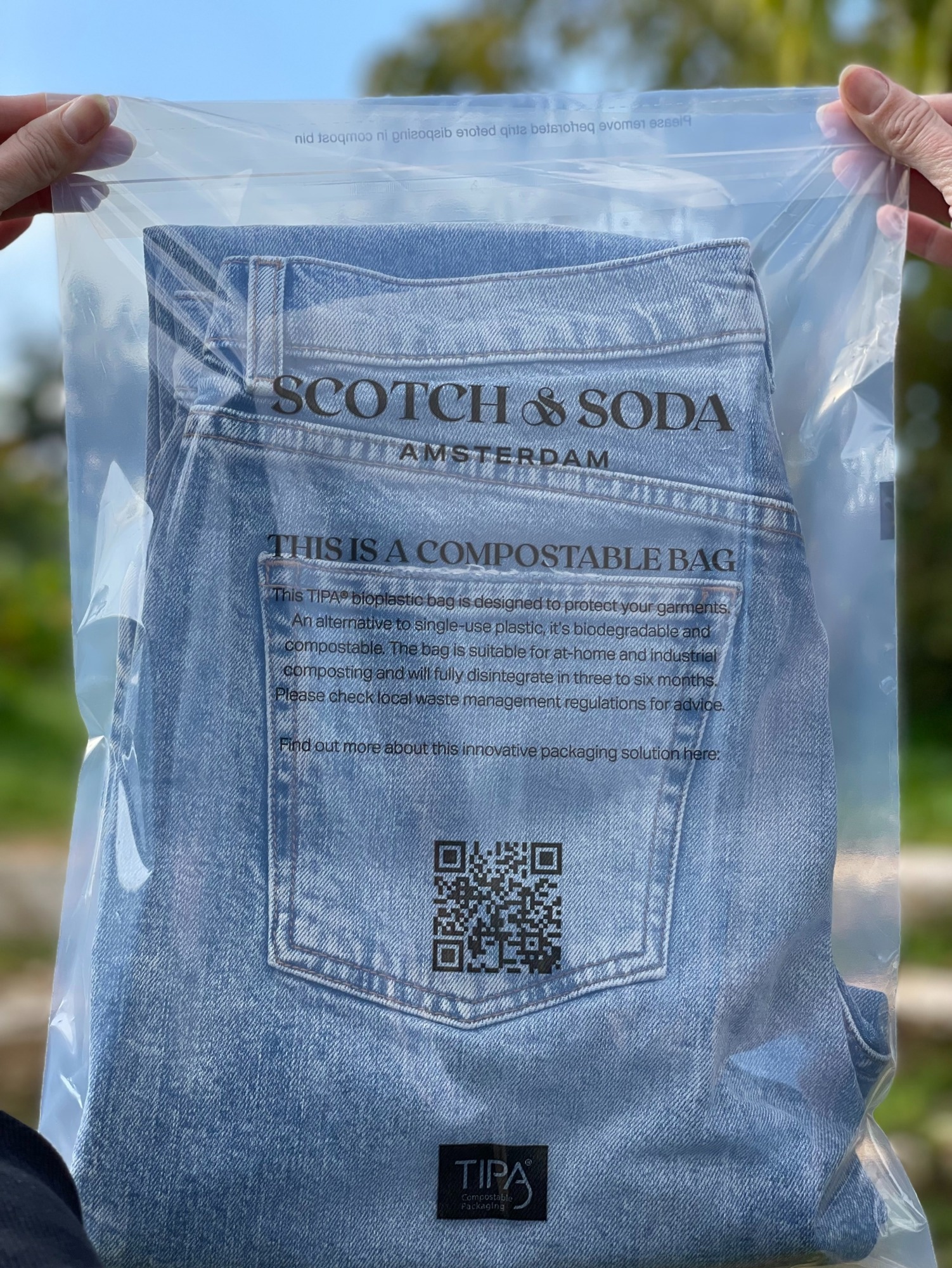In this interview, AZoCleantech speaks with Daphna Nissenbaum, CEO and Co-Founder of TIPA, who is leading the charge in creating compostable packaging solutions, aiming to replace traditional plastics globally.
Please could you introduce yourself and discuss your role as CEO at TIPA? We're particularly interested in hearing about your journey to this position and your key responsibilities in shaping the company's direction in sustainable packaging.
My name is Daphna Nissenbaum, and I am the CEO and co-founder of TIPA®. In 2010, I founded TIPA after discovering a disturbing truth about plastics. The majority of plastics aren't recycled; instead, they accumulate in landfills, waterways, and the ocean, persisting for centuries without breaking down.
I have a bachelor's degree in economics and computer science from Bar Ilan University and an MBA in marketing and entrepreneurship from IDC Herzliya. I also served as the CEO of the Caesarea Center for Capital Markets and Risk Management at IDC Herzliya.
My previous experience in managerial and business development roles, as well as my software engineering background, served me well as I began to build a business and develop a proof of concept for fully compostable plastic alternatives that could be disposed of in home composters, as well as in industrial ones.
From researching the problem, I learned that less than 5 percent of flexible plastic packaging recycled by consumers ends up actually being recycled. This realization ignited my quest to develop a compostable plastic packaging alternative to traditional flexible plastic packaging, one that leaves behind zero waste when properly disposed of after use.
One of my main inspirations was the orange peel. It is durable enough to provide protection from air, water, and bacteria, yet is 100% compostable.

Image Credit: TIPA
Creating a product with these attributes was not easy, however. My team spent five years in research and development before going to market with a home-compostable certified flexible packaging solution that is now used across Europe, the USA, and Australia.
At TIPA, my team and I are continuously striving to create innovative compostable plastic packaging solutions for a range of products and collaborate with as many food and fashion brands as we can - ridding the world of plastic one package at a time.
What are some of the challenges associated with conventional flexible plastic packaging?
Conventional flexible plastic packaging poses several significant challenges. One of the primary issues is the technical and economic impracticality of recycling thin films and multilayered plastic packaging. This limitation results in recycling rates for flexible packaging that barely reach 3%, even in advanced markets like the EU. The majority of these materials end up either incinerated, sent to landfills, or, even more detrimental, left in the open environment, contributing to pollution in our oceans, soil, and water.
TIPA focuses on addressing these challenges, particularly in the realm of flexible and multilayered packaging. While this type of packaging plays a vital role in our global supply chain, it remains unsuitable for both technical and economic recycling, leading to a significant pollution problem worldwide.
Our commitment lies in providing certified 'compostable' alternatives. These alternatives can disintegrate within a maximum of 180 days under composting conditions. By offering a certified compostable solution for this non-recyclable material, we aim to revolutionize the approach to flexible packaging. This shift is crucial for advancing towards a circular economy and a more sustainable future, ultimately addressing the pollution and waste challenges associated with conventional flexible plastic packaging.
Given TIPA's vision for flexible packaging, which aims to mirror the end-of-life properties of organic matter while retaining key qualities of conventional plastics, how do you balance these seemingly contrasting goals in your product development? Specifically, what challenges and innovations are involved in maintaining qualities such as durability, transparency, and shelf-life in your compostable packaging solutions?
TIPA is uniquely positioned to invent, improve, and research new properties of compostable plastics, as we are one of the only companies in the industry with an in-house research and development lab. Our R&D department has a fully equipped laboratory that includes full-scale production machinery to conduct an array of tests that include transparency, durability, and barrier properties, as well as how the films or laminates behave in composting conditions.
The R&D process involves examining a customer’s unique needs to package their product in compostable packaging. I would say that the biggest challenge we have now is trying to develop a compostable plastic that has moisture barrier properties for liquids, akin to a plastic water or juice bottle. We work relentlessly to achieve that.
TIPA serves various market segments, such as fashion, fresh produce, and coffee. How do the needs and challenges differ across these segments, and how does TIPA tailor its solutions accordingly to enable clients to integrate compostable packaging into their existing supply chains and processes?
In the fashion industry, companies prioritize packaging that reflects the brand's image, enhances the perceived value of the product, and presents it in the most appealing way. Additionally, protection from environmental factors and aesthetics could be crucial.
Fresh produce requires packaging that provides proper ventilation, moisture control, and protection from physical damage. Transparency for consumers to inspect the quality of the produce is also important.
TIPA can customize its compostable materials to meet the specific requirements of each industry. For example, adjusting the material composition for flexibility, transparency, or barrier properties. TIPA also works closely with customers to design packaging solutions that not only meet functional requirements but also align with the brand image and product characteristics.

Image Credit: TIPA
As sustainability becomes increasingly important in consumer goods, how do you see the market for compostable packaging evolving in the next few years? What role will TIPA play in this evolution?
The compostable packaging industry is expected to grow at a compounded rate of 8.6% per year from 2023 to 2030, at which point it is expected to be valued at $2.4 billion. This growth is partly driven by more eco-conscious consumers and their demand for eco-friendly packaging solutions.
In addition, more and more facilities, particularly in the US, are accepting composting packaging. As awareness grows of this option for waste management, I predict that it will help ease consumers further toward the transition to compostable plastics and the idea of throwing packaging in the composter.
Additionally, I predict growth in the edible packaging industry, where TIPA has become a major player lately, partnering with Wyld to switch their packaging to TIPA’s compostable ones.
At TIPA, we believe that this growth and market interest is driven by innovation. We aim to make compostable packaging accessible to as many brands as possible. TIPA plans to play an instrumental role in amplifying the local production of compostable packaging by teaming up with additional manufacturers so businesses and consumers in the US, Europe, and Australia can enjoy reduced supply chain timelines that result in less environmental impact from shipping emissions. We are planning significant expansion, particularly in North America and fast-growing sectors such as snacks and legal cannabis.
How does TIPA measure and report on the environmental impact of its products? Are there any sustainability metrics or goals that the company is particularly focused on achieving?
Our goal is to encourage brands to embrace compostable packaging whenever possible across all their packaging needs. While it may be possible to eliminate traditional plastic packaging in some cases, there are situations where products are necessary to maintain the freshness and cleanliness of goods, and that is where we step in.
TIPA has recently ventured into the cannabis market with its compostable packaging solutions. What motivated this strategic decision, and how does it align with TIPA's overall growth objectives?
The legal cannabis market in North America is quickly growing. As a relatively new industry with a large Millennial consumer demographic, industry growth is met with high demand for environmentally-conscious products.
Our decision to become a packaging vendor to the market aligns with our broader mission to eliminate plastic waste from packaging in high-growth and high-volume sectors.
Wyld is one of the largest edible cannabis companies in North America. Therefore, we are sure that this partnership will set an example for others in the industry to follow suit.
TIPA’s 608 home compostable laminate is compatible with existing plastic packaging machinery. How significant is this in terms of reducing transition costs for companies switching to sustainable packaging?
The compatibility of TIPA's 608 home compostable laminate with existing plastic packaging machinery plays a crucial role in reducing transition costs for companies shifting to sustainable packaging. Our company and customers recognized a significant demand for locally-made compostable films and laminates as a means to enhance the sustainability of the packaging supply chain, and TIPA is proud to meet that need.
Compatibility is one of the fundamental principles of our company, serving two primary goals: cost reduction and emissions reduction. Historically, compostable packaging has been imported to the US from Europe, resulting in greenhouse gas emissions from shipping. By shifting towards local production, we contribute to a "greener" overall lifecycle. Additionally, by leveraging existing supply chain infrastructure for manufacturing and deployment, we accelerate the adoption of our products.
Given the stringent packaging regulations in the cannabis industry, particularly around individual wrapping, how does TIPA’s solution address these regulatory challenges while maintaining sustainability?
Our solutions are designed to be highly customizable, allowing brands to adapt to the diverse and stringent state- and local-based regulations governing the packaging of legal cannabis products. This customization encompasses various features that ensure secure and compliant packaging, such as child-resistant seals, resealability options, individual wrapping capabilities, opacity for discretion, and printability for labeling and branding requirements.
With the global legal cannabis edibles market growing rapidly, what impact do you foresee TIPA's compostable packaging having on the industry’s environmental footprint?
As a company, one of our main goals is to provide the market with as many compostable packaging solutions as possible. Thus improving its sustainability image, reducing the sector's overall plastic waste, and lowering its carbon footprint.
In a growing industry such as this, our partnership also sets the stage for possible regulatory compliance of other brands.
With plans to produce an estimated 100 million units for Wyld, how is TIPA scaling its production capabilities to meet this demand? Are there any challenges or innovations involved in this scaling process?
The beauty of our packaging solutions is that we are not limited to the production capabilities of one factory or facility. The versatility of our packaging solutions lies in the fact that they can be seamlessly integrated into existing plastic manufacturing machines.
This adaptability eliminates the need for building new manufacturing facilities, reducing potential logistical challenges associated with scaling up production. It allows us to utilize established supply chain infrastructure, enhancing efficiency and reducing lead times. Moreover, our ability to leverage existing machinery promotes cost-effectiveness and accelerates the scaling process.
In essence, our innovative approach to scalability hinges on the compatibility of our solutions with existing production infrastructure, making it a smoother and more sustainable transition to meet increased demand while minimizing potential challenges.
Looking beyond the current focus on cannabis edibles, what are TIPA’s long-term goals in the realm of sustainable packaging? Are there any other markets or product areas you are aiming to explore?
TIPA is looking to further expand into the North American, European, and Australian markets through additional collaborations with leading manufacturers and brands. Through our unique R&D approach, we are also looking to extend our reach in food and fashion packaging, with potential expansion into any new markets interested in a sustainable alternative to conventional plastic packaging.
TIPA's fully compostable flexible packaging replaces conventional plastic, turning waste into a resource and a crisis into an opportunity.
About Daphna Nissenbaum
 Before launching TIPA®, Daphna was CEO of the Caesarea Center for Capital Markets and Risk Management at the Interdisciplinary Center (IDC), Herzliya. Previously, she held various management positions at SPL World Group Ltd, a provider of revenue and operations management software, prior to which she held the position of project manager at Whelty Lager Ltd., located in Boston, MA, US.
Before launching TIPA®, Daphna was CEO of the Caesarea Center for Capital Markets and Risk Management at the Interdisciplinary Center (IDC), Herzliya. Previously, she held various management positions at SPL World Group Ltd, a provider of revenue and operations management software, prior to which she held the position of project manager at Whelty Lager Ltd., located in Boston, MA, US.
Daphna holds an MBA specializing in Marketing and Entrepreneurship from IDC Herzliya (graduated with honors) and a BA in Economics and Software Engineering from Bar Ilan University. She graduated from the elite Israel Defense Forces software engineering program (Mamram) and served in the Israeli Navy software unit as an officer (ranked Captain).
Today, Daphna is leading the TIPA team in the movement to revolutionize packaging systems and rid the world of plastic pollution.
Disclaimer: The views expressed here are those of the interviewee and do not necessarily represent the views of AZoM.com Limited (T/A) AZoNetwork, the owner and operator of this website. This disclaimer forms part of the Terms and Conditions of use of this website.